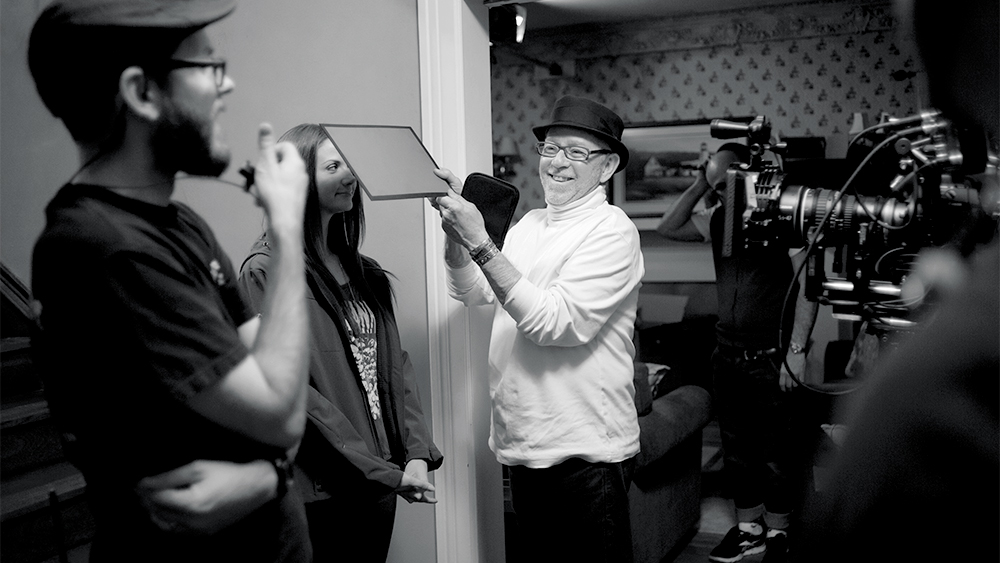Below-the-Line Unions Work on Ways to Pass Torch to Next Generation
By Zoe Hewitt
LOS ANGELES (Variety.com) – In an industry that has long relied on apprenticeship programs to pass down skills from one generation to the next, the breakdown of the old studio system — along with the growing itinerant nature of below-the-line employment — have posed new challenges to the transfer of knowledge to younger artisans. In response, unions and guilds have devised new ways to pass the baton.
Steven Poster, pictured above, national president of the Intl. Cinematographers Guild ( Local 600), explains that in earlier times, film crews worked together for years. Film schools weren’t as prevalent as they are today, and newer union members learned skills through on-the-job training directly from those with more experience.
To replace that tradition, at a time when camera crews tend to fluctuate more, the union has set up the Local 600 Mentorship Program, a pilot effort designed to help existing members learn from an experienced DP — but away from the set. The program is open to union members only.
Meanwhile, American Cinema Editors, an honorary society of film cutters working to promote their art, has created an internship program for newcomers who don’t belong to the Motion Picture Editors Guild (IATSE Local 700) but are eager to get their foot in the door. Program graduates and working editors Tyler Nelson and Carsten Kurpanek serve as the initiative’s co-directors.
“The entry point [to the industry] is really guarded,” Kurpanek says. Since they often work on high-profile IP, many editors are restricted from training rookies who wouldn’t be allowed to view the material. Thus the ACE internship opens doors within the profession that are otherwise closed.
Candidates complete an extensive application, submit letters of recommendation and undergo in-person interviews. Only two are chosen for the program each year. Once they’re selected, they spend three weeks shadowing editors, building contacts and touring key post-production facilities.
Applicants who aren’t chosen are invited to attend a lecture series with panel discussions about cutting-room protocol, what it takes to break into the industry and how to become an assistant editor.
“We want to be inclusive,” Kurpanek explains. “It’s not shark-infested waters; it’s a nurturing community.”
Academy Award-nominated editor Joi McMillon (“Moonlight”) is one of the internship program’s most successful graduates. “The experience is invaluable,” she notes. It provided a “level of access I didn’t know how to get otherwise, and a firsthand look at where I aspired to be.”
It’s not just the creative crafts but the skilled trades that benefit from these initiatives. For example, the apprenticeship program of Local 40 of the Intl. Brotherhood of Electrical Workers, repping the industry’s electrical and HVAC workers, has been in place since 1962.
Training director and apprenticeship coordinator Louie Meza says the program benefits both the union and producers because it offers job opportunities for younger workers while helping to reduce payroll, since apprentices are paid less than the expert journeymen, who are state-certified. Training includes 1,200 classroom hours and the 10,000 apprenticeship work hours that eventually lead to the journeyman status.
While the cinematographers union would like to have an on-the-job training program, starting one is complex. “It’s something that has to be negotiated with the producers and that someone has to pay for,” says Poster. “It’s not something we can do unilaterally.”
Union contracts specify who in the union does which tasks on set. That means unions would allow nonunion interns to observe but not perform union-dictated work. Yet, per Poster, insurance and liability coverage maintains that everyone on set must do a job. Stuck in a catch-22, they can’t learn unless they’re working, and they can’t work unless they’re already experienced.
So, until more widespread programs are in place, it falls to current union members to voluntarily assist the next generation of artisans.
Prop master Angela O’Neill (“American Crime”) tries to meet with the referrals that come her way. “I got started in this industry with help from people, and I always want to pass that forward,” she says.
Poster, like O’Neill, sits down with those who reach out for advice. “I like doing it for kids,” he says, “but it’s a sad comment that there isn’t a more formal way of training people for the industry.”

